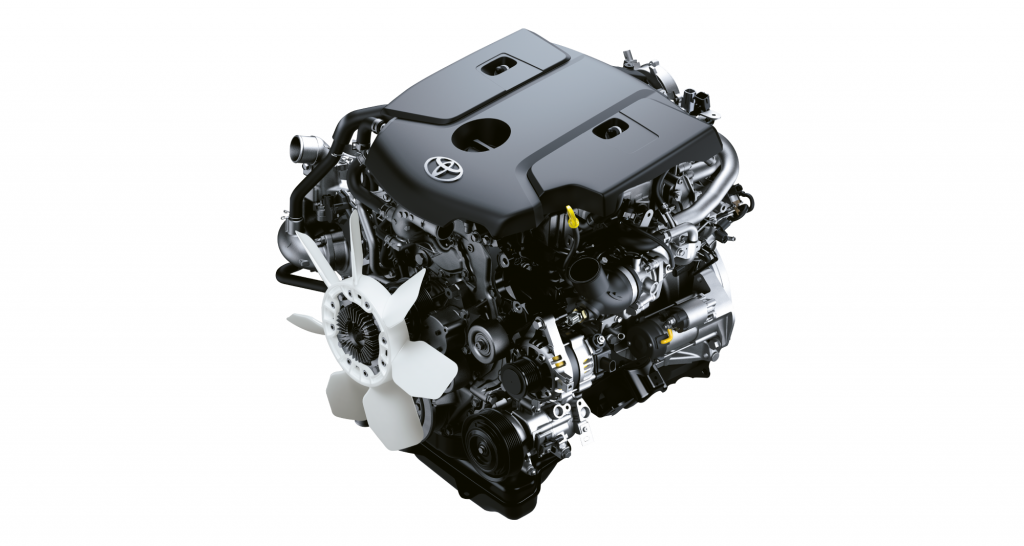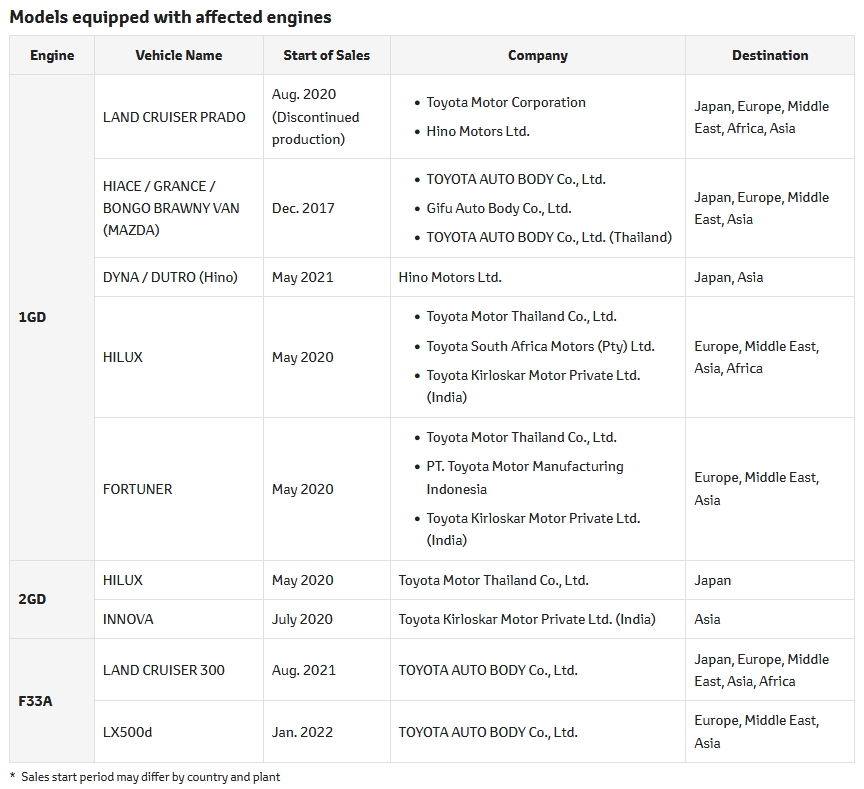Toyota Stops Sale Of 10 Diesel Models Over Testing Irregularities

The testing irregularities come interestingly from reported horsepower figures instead of the expected emissions.
It seems that when it rains in Toyota land, it really pours. Such is because having already been embroiled in the recent safety scandal involving Daihatsu and emissions scandal with Hino, the Japanese auto giant has since also admitted that there may have been a little hanky-panky going on with some of its diesel engines.
Interestingly however, the problem does not appear to be involving the usual emissions alá Volkswagen’s Dieselgate. Instead, the irregularities that have been uncovered appears to revolve around the horsepower output of these affected engines.

More specifically, an investigation into this matter has the horsepower output performance of the engines tested was measured using ECUs with software that differed from that used for mass production. This in turn means that the results obtained appear smoother with less variation.
The diesel engines that have been determined to run afoul are Toyota’s 1GD, 2GD and F33A. Ten models currently use this engine globally, including the Hilux and Fortuner in Malaysia. The full list of equipped with affected engines are listed below:

Based on the results of the investigation, Toyota has decided to temporarily suspend shipments of vehicles equipped with the affected engines. Engine manufacturer Toyota Industries Corporation (TICO) has also since temporarily suspended shipments of the affected engines.
Toyota has also added in its apology regarding this matter that going forward, it will provide detailed explanations to the authorities and promptly proceed with appropriate measures. It also will henceforth allow future emissions and horsepower tests to be conducted in the presence of witnesses, should there be need to do so.

Now rather curiously though, Toyota has nevertheless stated that it has since re-verified the affected engines manufactured for mass production models and found that they meet output standards. This in turn means that the roughly 84,000 vehicles around the world that were sold with suspect engines can still be used as per normal.
Funnily enough too, this diesel scandal only came to light when a special investigation committee was commissioned to initially investigate potential irregularities of certification regulations related to inappropriate domestic emissions certification of TICO engines for forklifts and construction machinery. This initial investigation was commissioned after it was discovered for TICO to have engaged in fraudulent practices such as using false data in performance tests of forklift truck engines.




